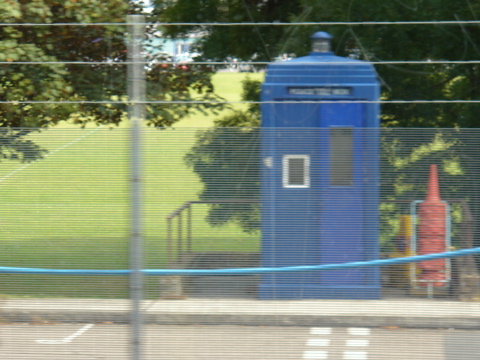Yet another British war game to add to the pile, this one from 1922: The Raider.
A copy of a new game called "The Raider" has been received from Enstone and Lilienfeld, of 47, Berners Street, W.1. The game consists of a large sheet divided into squares, the whole showing a view of a battle-front seen from the air. The game is played with miniature attacking and defending aircraft, and is further complicated by machine gun and shrapnel barrage, contrary winds and failing engines. Moves are made by throwing dice, the object being for the attacking force -- 3 in number -- to reach and bomb a village and return intact.
The defending force is 9 in number, and these take off from two different aerodromes. The game, which was invented by an officer of the R.A.F., is so designed that experience in the gentle art of scrapping in the air is of considerable value to the players. The price is 5s. net.
Incidentally, Messrs Enstone and Lilienfeld, by whom the game is made and marketed, are ex-officers of the R.A.F., and they have besides a most amazing selection of "Brainwave" games and implements with which to pass the time amusingly.1
This is rather interesting, especially given the timing: about 5 weeks after P. R. C. Groves popularised the knock-out blow in a series of articles The Times. I think you could just about knock together a boardgame in that time; on the other hand, Messrs Enstone and Lilienfeld might have working on it for some time and it may just be a coincidence. The object is to bomb (or defend) a village, which could be considered a civilian target, though given that the map is described as a 'battle-front' I'd say it's more likely that it's being attacked to support ground operations. The defenders out-number the attackers by three to one, which seems unusual in these sorts of games: normally the forces are quite symmetrical. It suggests a "bomber will always get through" mentality, but it could also just as easily be the result of the way the game is set up (for example, perhaps the defending player gets to choose where their aerodromes are, but does so before the attacker: they would then be at a severe disadvantage unless they had more units to play with). And the suggestion that the game is 'so designed that experience in the gentle art of scrapping in the air is of considerable value to the players' implies that the rules allow the possibility for aerial manoeuvring and are in some sense intended to be "realistic" rather than abstract (as do the rules about AA, wind and engine failure), though I wonder how that works given that movement is said to be based on die rolls.
Google seems not to know about The Raider so presumably it wasn't a big seller, despite the Aeroplane's best efforts.
- Aeroplane, 3 May 1922, p. 312. [↩]


